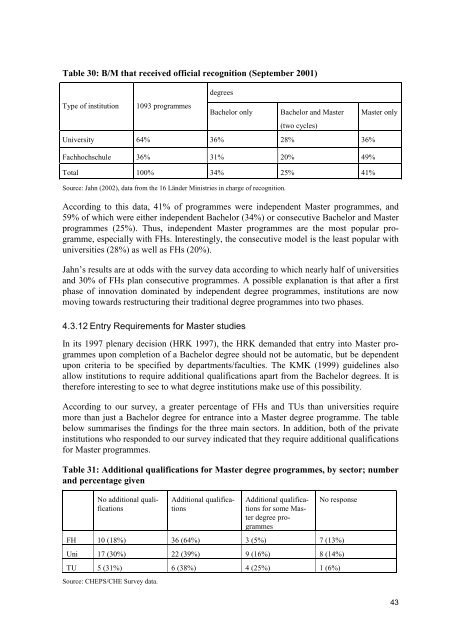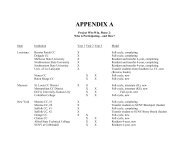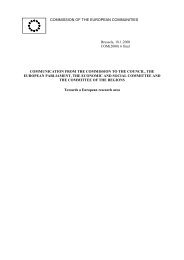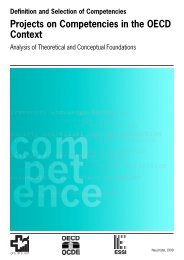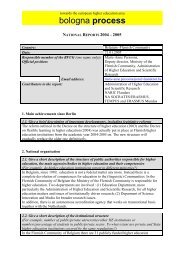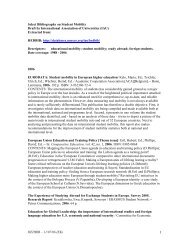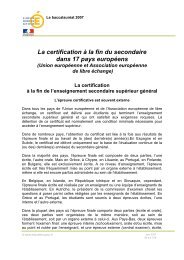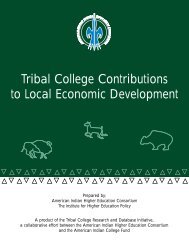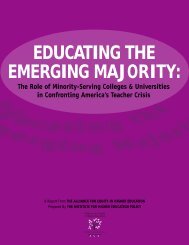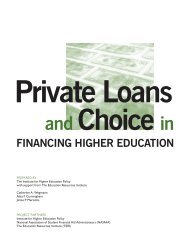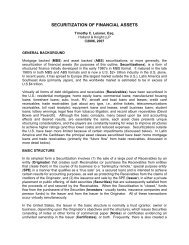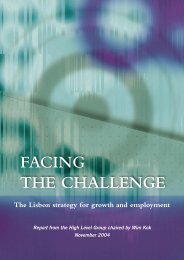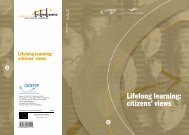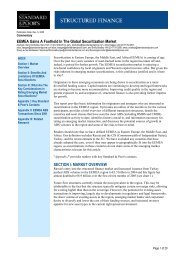and Master Programmes in German Higher Education Institutions
and Master Programmes in German Higher Education Institutions
and Master Programmes in German Higher Education Institutions
- No tags were found...
You also want an ePaper? Increase the reach of your titles
YUMPU automatically turns print PDFs into web optimized ePapers that Google loves.
Table 30: B/M that received official recognition (September 2001)Type of <strong>in</strong>stitution1093 programmesdegreesBachelor onlyBachelor <strong>and</strong> <strong>Master</strong>(two cycles)University 64% 36% 28% 36%Fachhochschule 36% 31% 20% 49%Total 100% 34% 25% 41%Source: Jahn (2002), data from the 16 Länder M<strong>in</strong>istries <strong>in</strong> charge of recognition.<strong>Master</strong> onlyAccord<strong>in</strong>g to this data, 41% of programmes were <strong>in</strong>dependent <strong>Master</strong> programmes, <strong>and</strong>59% of which were either <strong>in</strong>dependent Bachelor (34%) or consecutive Bachelor <strong>and</strong> <strong>Master</strong>programmes (25%). Thus, <strong>in</strong>dependent <strong>Master</strong> programmes are the most popular programme,especially with FHs. Interest<strong>in</strong>gly, the consecutive model is the least popular withuniversities (28%) as well as FHs (20%).Jahn’s results are at odds with the survey data accord<strong>in</strong>g to which nearly half of universities<strong>and</strong> 30% of FHs plan consecutive programmes. A possible explanation is that after a firstphase of <strong>in</strong>novation dom<strong>in</strong>ated by <strong>in</strong>dependent degree programmes, <strong>in</strong>stitutions are nowmov<strong>in</strong>g towards restructur<strong>in</strong>g their traditional degree programmes <strong>in</strong>to two phases.4.3.12 Entry Requirements for <strong>Master</strong> studiesIn its 1997 plenary decision (HRK 1997), the HRK dem<strong>and</strong>ed that entry <strong>in</strong>to <strong>Master</strong> programmesupon completion of a Bachelor degree should not be automatic, but be dependentupon criteria to be specified by departments/faculties. The KMK (1999) guidel<strong>in</strong>es alsoallow <strong>in</strong>stitutions to require additional qualifications apart from the Bachelor degrees. It istherefore <strong>in</strong>terest<strong>in</strong>g to see to what degree <strong>in</strong>stitutions make use of this possibility.Accord<strong>in</strong>g to our survey, a greater percentage of FHs <strong>and</strong> TUs than universities requiremore than just a Bachelor degree for entrance <strong>in</strong>to a <strong>Master</strong> degree programme. The tablebelow summarises the f<strong>in</strong>d<strong>in</strong>gs for the three ma<strong>in</strong> sectors. In addition, both of the private<strong>in</strong>stitutions who responded to our survey <strong>in</strong>dicated that they require additional qualificationsfor <strong>Master</strong> programmes.Table 31: Additional qualifications for <strong>Master</strong> degree programmes, by sector; number<strong>and</strong> percentage givenNo additional qualificationsAdditional qualificationsAdditional qualificationsfor some <strong>Master</strong>degree programmesNo responseFH 10 (18%) 36 (64%) 3 (5%) 7 (13%)Uni 17 (30%) 22 (39%) 9 (16%) 8 (14%)TU 5 (31%) 6 (38%) 4 (25%) 1 (6%)Source: CHEPS/CHE Survey data.43


